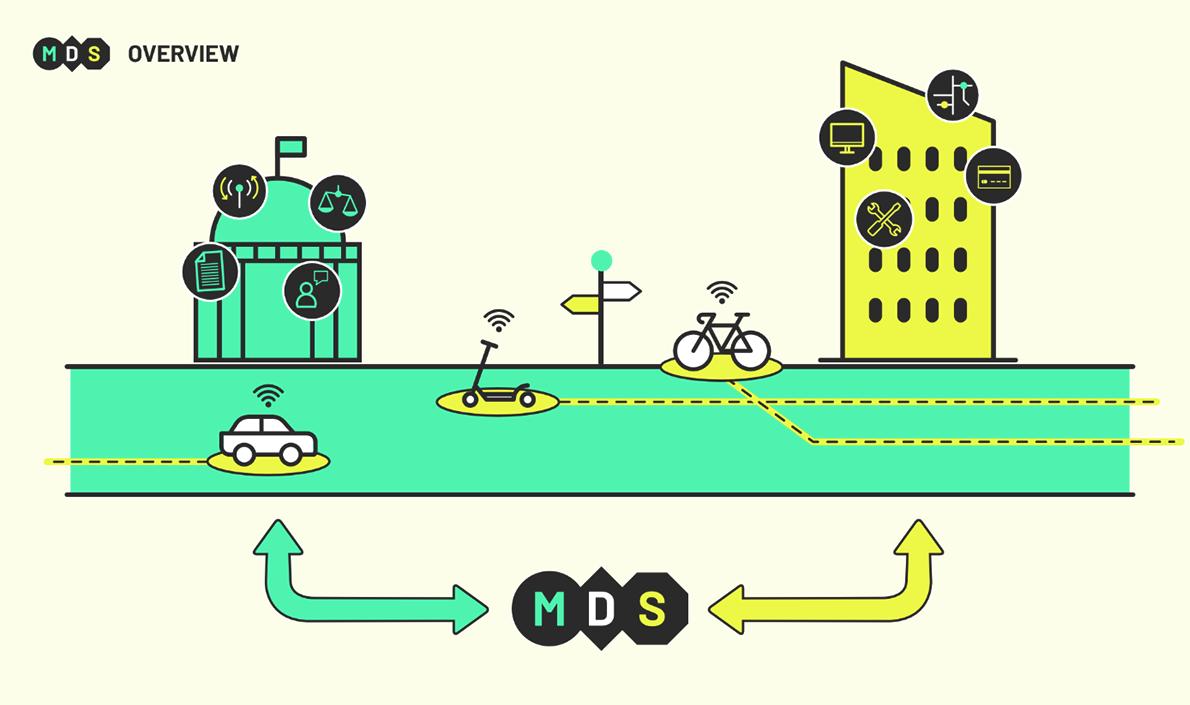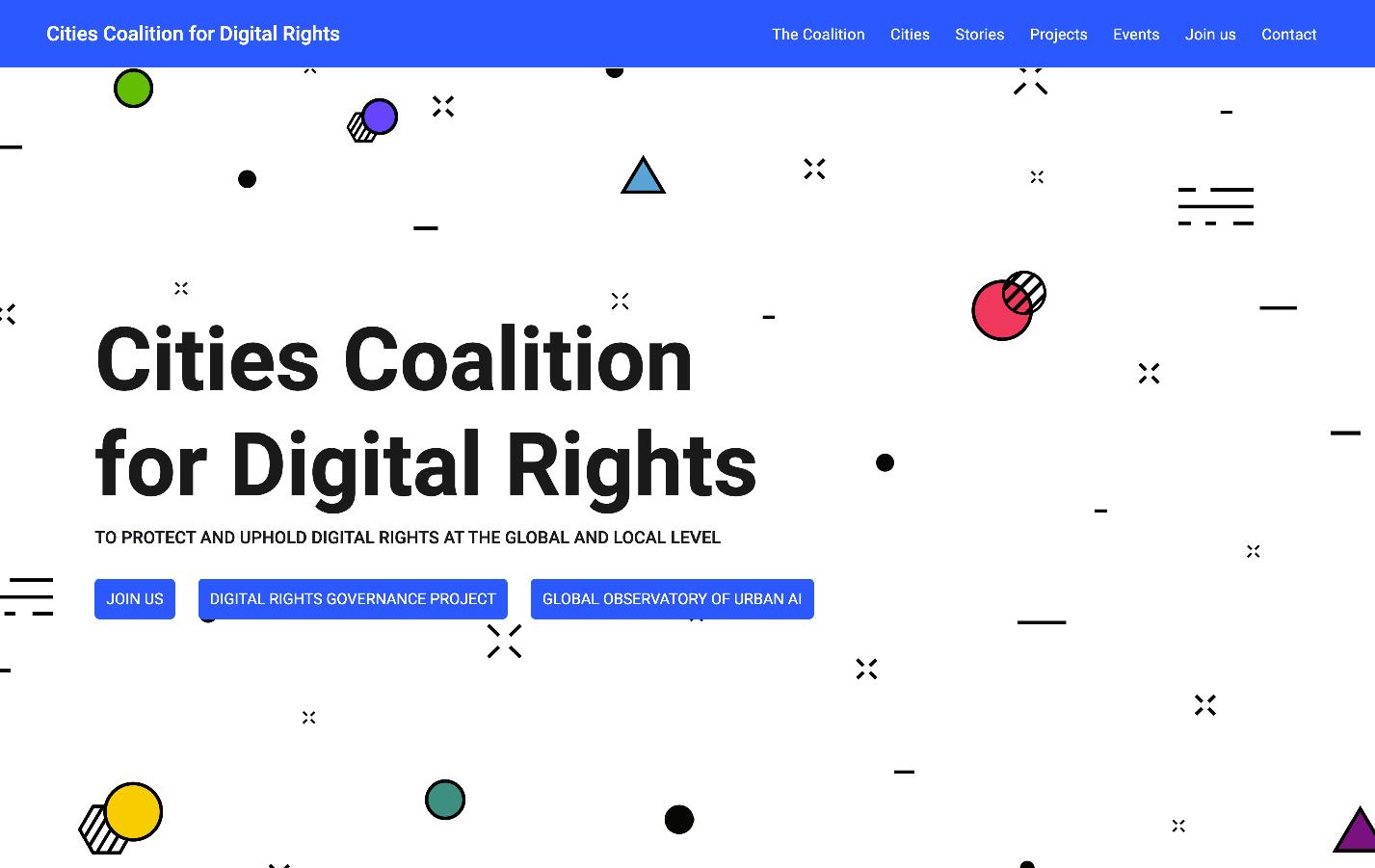
8 minute read
Dockless Micromobility and Post Tech-Lash Municipalism: Cities Band Together and Demand Data
Similarly, after Airbnb’s challenge to local law 146 saw initial success in court during the Airbnb vs. New York City case, the city later flexed its regulatory might, issuing subpoenas against Airbnb and HomeAway and a judge then ordered the companies to turn over their data.58 New York and Airbnb eventually reached an agreement in which anonymized platform information is periodically shared with public officials. Likewise in Boston, a settlement was reached in 2019 through which Airbnb has become more cooperative with short term rental restrictions and regularly shares data with the city.59
In a post-techlash world, cities have had more political leverage and public support to take on platform urbanism. The arrival of dockless micromobility as a new entrant into the sharing economy also gave cities more practical leverage: it is a lot easier to impound a bike or scooter than it is to seize an automobile or apartment. Learning lessons from their experiences with Uber and Airbnb, and more experienced with utilizing open data standards like the General Bike Feed Specification (GBFS), local government officials passed regulations seeking data. The Los Angeles Department of Transportation (LADOT)’s development of the Mobility Data Specification and the emergence of the Open Mobility Foundation (OMF) to maintain and support not only that technical standard, but also that broader regulatory approach helped spread a stronger, more technically sophisticated form of data sharing mandate to cities across the country and internationally. It also alarmed privacy activists and reignited existing fights over corporate platform data, bring high profile lawsuits and continued debate.
58 Botero Arcila, “The Case for Local Data Sharing Ordinances.” 59 Paris Martineau, “Airbnb Starts to Play Nice With Cities,” Wired, accessed April 11, 2022, https://www.wired. com/story/airbnb-starts-play-nice-cities/.
Arrival of Micromobility and an Explosion of the Data Sharing Approach
Since the first introduction of shared fleets of dockless personal mobility vehicles that can be rented with an app on city streets in Greensboro, North Carolina, now known in the industry as “micromobility”, cities have been requiring data sharing like never before. Since 2018, over 55 individual policies have been enacted in over 35 unique public agencies, accounting for over 70% of total data sharing policies identified and covering over three quarters of all cities with at least one data sharing policy requirement.
A number of factors help to explain this phenomenon, including increased city leverage, a lack of public trust in platforms, new public sector technical competencies, and organized municipalism.
City Leverage
Compared to their position during the arrival of Uber and Airbnb, cities had important new leverage when it came to micromobility platforms and their fleets. In addition to the political leverage cities had gained in a post tech-lash world, micromobility also gave cities a newfound physical leverage over sharing economy platforms. Unlike an automobile owned by an individual used for ride hail or a house or apartment used for short term rentals, bikes or scooters owned by a startup left unaccompanied on city streets are physically smaller and owned by a single entity, the platform company, rather than by a myriad of users. As a result, these assets can be easily and legitimately confiscated by a city public works department, providing a “stick” to bring companies to the negotiating table and ensure compliance, including with data-sharing asks.
“Fool me twice” - Unrealized Visions and Undisclosed harms
As noted by Botero Arcila, many city officials felt the experience of déjà vu when micromobility operators arrived and deployed large fleets of bikes and scooters on city streets and sidewalks, recalling the disruptions of the sharing economy’s first wave60. These memories of both unrealized visions
60 Botero Arcila, “The Case for Local Data Sharing Ordinances.”
and undisclosed harms, especially from ride-hail platforms bolstered local government’s willingness to stand firm on various regulatory requirements, including on data.
Uber and Lyft had told local governments and the public that their platforms would save our cities, supporting public transit by allowing users to forego car ownership, and reducing traffic and emissions in the process. It turns out, none of that was true. Not only were city officials unable to verify claims of benefit, but they were also unable to see the extent of harms like increased emissions and traffic, and decreased public transit ridership. The sentiment among city officials is that both they and the public would have known a lot sooner if cities had had the data to measure and evaluate61. By the time scooters came to town, cities had learned this lesson and asked for the data up front.
New Technical Capabilities - Open Data Standards and APIs
Local governments had become more technically savvy in the decade between the launch of ride-hail and the arrival of micromobility platforms on city streets. Two data standards provide context for how city use of and growing familiarity with technology strengthened their ability to require access to data.
General Bike Feed Specification (GBFS) - The General Bike Feed Specification (GBFS) was developed and launched by the North American Bikeshare Association (NABSA) in 2015 as a “read-only” open data feed through which bike share providers could share a real-time snapshot of the system status—the location and availability of system vehicles not currently being ridden—in a uniform format publicly available online. With it, many civic technologists and city transportation departments began utilizing private sector generated bike share open data for the first time, often accessing this data via a dynamic application program interface (API) connection. This experience demonstrated the power of business to government (B2G) data sharing, including real-time data sharing,
61 K. Casey Strong, “When Apps Pollute: Regulating Transportation Network Companies to Maximize Environmental Benefits,” University of Colorado Law Review 86 (March 29, 2015), https://lawreview-dev. cu.law/wp-content/uploads/2015/07/12.-86.3-Strong_Final.pdf. “Volume 86 – University of Colorado Law Review,” accessed April 11, 2022, https://lawreview.colorado.edu/volume-86-2/.
in a digital platform context and helped reset government expectations and visions for the possible, laying some groundwork for data sharing requirements on micromobility platforms.
Mobility Data Standard (MDS) - One hurdle for platform data sharing had been a technical protocol for data exchange that could provide insights beyond GBFS. This changed in 2018 when the Los Angeles Department of Transportation developed the Mobility Data Specification (MDS)62 and required that micromobility companies utilize MDS to share near real-time vehicle status and trip data via API as a condition of participating in the city’s “One Year Dockless Mobility Pilot”63. While Los Angeles was able to leverage its size and prominence to require data, the development of MDS set the standard, literally, for other cities, and gave them a ready-made technical solution to point to, thus lowering the barriers when designing their own data sharing requirements. The availability of MDS as an open standard (something that wasn’t available when Uber or Airbnb first launched and came to prominence) likely had an impact on local governments’ willingness and ability to respond to micromobility deployments with data mandates.
62 The development of the Mobility Data Specification in 2018 was initiated by LADOT in consultation with Ellis & Associates, a contractor that first recommended ‘standardization of data practices to enable more effective regulation’ in a strategic plan prepared for the city. Ellis & Associates was later acquired by Lacuna Technologies, a startup founded to help cities implement MDS. MDS’s origins in the private consulting world and Lacuna’s continued involvement in its governance as part of OMF have been the topic of criticism, a full accounting of which is outside the scope of this report. See: Bliss, L. (2020, February 21). “This City Was Sick of Tech Disruptors. So It Decided to Become One.” Bloomberg.Com. https://www. bloomberg.com/news/articles/2020-02-21/as-l-a-plays-tech-disruptor-uber-fights-back
63 Emmett Z. (Emmett Zane) McKinney, “Code Shift : Data, Governance, and Equity in Los Angeles’s Shared Mobility Pilots” (Thesis, Massachusetts Institute of Technology, 2020), https://dspace.mit.edu/ handle/1721.1/127621.2020
Figure 12. The Mobility Data Specification (MDS) is a data exchange protocol through which cities can access data from mobility operators and can also share data with them. Graphic from the Open Mobility Foundation’s “About MDS” website64
Coordinated Municipalism
Beyond the technical standard itself, the Mobility Data Specification also gave rise to a non-profit, the Open Mobility Foundation (OMF) that has played a large role in organizing local governments and helping them work together on a more coordinated response to micromobility platforms since its founding in 2019, which includes helping to spread MDS and the policies that mandate data sharing. OMF’s members now include over 40 public sector agencies and over 130 cities and other public agencies have used MDS globally according to OMF’s website.65
While OMF is specific to the transportation sector, cities are banding together around issues of data and technology more broadly as well. In November of 2018 the City of Barcelona founded the Cities Coalition for Digital Rights, along with its two founding partners the City of Amsterdam
64 “About MDS | Open Mobility Foundation,” September 11, 2020, https://www.openmobilityfoundation.org/ about-mds/. 65 “Who Is Using MDS? | Open Mobility Foundation,” March 26, 2021, https://www.openmobilityfoundation. org/mds-users/.
and the City of New York. This global coalition now backed by UN Habitat has grown to over 50 city members all seeking to “protect, promote and monitor residents’ and visitors’ digital rights” in urban environments globally. Specific objectives include “improved privacy and control over personal information through data protection in both physical and virtual places” and “managing our digital infrastructures and data as a common good”.66
This kind of coordination among jurisdictions in ways specifically focused on data and technology is perhaps indicative of the broader rise of a kind of municipalism that was absent when Uber and Airbnb first launched allowing, those platforms to take a divide-and-conquer approach and leaving cities in a low-leverage race to the bottom.

Figure 13. In November 2018, the Cities of Amsterdam, Barcelona, and New York founded the “Cities Coalition for Digital Rights”, a network that now includes over 50 cities globally. The organization’s objectives include both “Improved privacy and control over personal information through data protection in both physical and virtual places” and “managing our digital infrastructures and data as a common good”.67
66 “Declaration of Cities Coalition for Digital Rights,” accessed April 18, 2022, https://citiesfordigitalrights.org/ declaration.
67 “Home,” Cities for Digital Rights, accessed May 11, 2022, https://citiesfordigitalrights.org/home.







